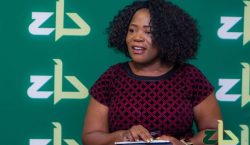

And if they do, she adds, they should make sure they get paid for their efforts and if by any chance, the political party they would have been clamouring for loses popularity they could also lose support from their fans.
Mtetwa was responding to questions from the floor at the “Peace Night” function organised by the Artists for Democracy in Zimbabwe Trust (ADZT) and Pamberi Trust at the Book Cafe in Harare last Friday.
At the function, Mtetwa also warned artists against being used by politicians for political ends saying doing so can prove fatal to their careers.
“You must not be abused and suppressed just because you need money. You must be able to perform at any political gathering be it MDC or ZANU-PF but in doing so it is important that you don’t lower your standards and do things that are detrimental to the society just to get money because if you do so then your career will be wrecked and you will have no one to blame,” she said, adding that the artists must continue advocating for the truth to powers that be.
“Artists must form groups and use them to advocate for peace your voices are loud and can reach out to everyone, art is not like any other profession that has rules written down in black and white it is flexible and can be done in a satirical way thus art can say anything,” said Mtetwa.
“Peace should be a lifestyle for all of us. The kind of peace that artists should help build is one that will last long, unlike the peace we saw in DRC and in Mozambique which was fragile.”
Many artists have fallen into the fray of politics at the height of their career and when the hype is over, they often find their careers plummeting. Some artists only make rare appearances at party functions and are never to be seen or heard of again.
On the other hand, some artists who have promoted the opposition parties have had their music denied airplay on the national broadcaster’s airwaves or have faced the wrath of the Censorship Board.
Mtetwa also presented a paper entitled, “The Role of Artists in Peace Building.”
In her presentation, Mtetwa challenged the artists to fight against repressive laws that inhibit their work and right to freely express themselves.
“Artists cannot be able to promote peace if they are inhibited from doing certain things or saying certain things therefore it is important that we start fighting for a conducive environment that will allow us to work for peace,” said Mtetwa.
“Journalists have done so and that is why they are able to write critical analysis and news. I want to urge you as artists to also do that. I am here to assist you as a lawyer in creating this space but I need clients to help test some of these lawyers. I am glad that one of the artists here, Tafadzwa Muzondo is doing so with the Censorship Board. Can you imagine what will happen if all of us join Tafadzwa?” She said.
Muzondo, a poet and stage actor had his work banned by the Censorship Board for being “politically sensitive”. He is fighting through the courts to have his work unbanned.
Mtetwa encouraged ADZT to work with artists based in rural areas saying these are locations that needed more peace building than the towns and cities. Saluting a poet from Gutu, Abel Mauchi, who recited a poem against human struggles and challenges at the function, Mtetwa said:
“I salute Mauchi. He is one of those critical voices that we need in our communities to build lasting peace. I encourage ADZT to continue working with such artists because they are the torch bearers of peace in our communities.”
In addition, Mtetwa said ADZT should be applauded for giving artists a platform to air their views but bemoaned that fact that while art is such a powerful voice for peace it is yet to be given its rightful place in Zimbabwe.
Speaking at the same function, the ADZT executive director, Stanley Kwenda, said artists have a very important role to play in building peace in the country.
“Artists occupy critical space in our society. They are the conscience of the society and its therefore important that they use their unique talents to help build lasting peace in the country,” he said.
“It is no secret that our country witnessed internecine violence that saw many deaths and displacements during the 2008 election therefore it is important for artists to add onto the existing voices of reason and call for peace. While our politicians have been on record calling for peace, it is not in the word but in the deed.”
ADZT was formed in 2007 to foster democratic participation for artists in Zimbabwe. It does this through the use of various artistic genres such as theatre, music, poetry, dance, visual arts and various other forms of art. More than 500 artists based in both urban and rural areas of Zimbabwe have signed up with the organisation, so far.
“Currently, we are running the Zimbabwe Peace Caravan whose main goal is to help place art at the centre of building lasting peace in Zimbabwe,” said Kwenda
“The Zimbabwe Peace Caravan is a nine month project aimed at building peace ahead of the constitutional referendum and elections. We believe artists are a powerful tool for fostering unity, peace and reconciliation. They can be trusted more than politicians who say things to win elections rather than change people’s attitudes and build peace in the country,” he added.